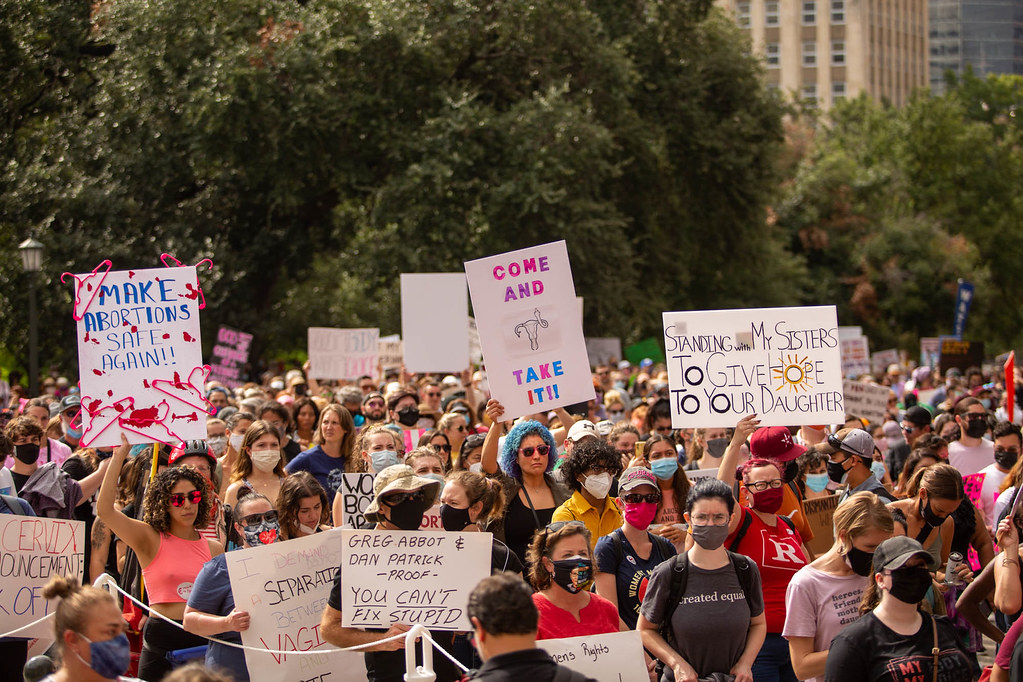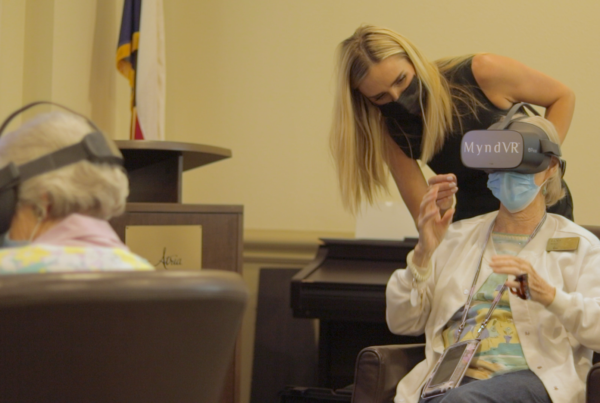On Wednesday, a state district court in Austin heard arguments in a consolidated case brought by 11 abortion providers and advocacy organizations against Texas Right to Life. The group opposes abortion, and was instrumental in drafting the Texas abortion law known as SB 8. The law allows individuals to sue those who seek abortions or assist anyone seeking them, after a fetal heartbeat is detected.
Madlin Mekelburg has been reporting on the case for the Austin American Statesman.
Listen to the interview above or read the transcript below.
This transcript has been edited lightly for clarity:
Texas Standard: It must have been quite a hearing. I understand it went for eight hours.
Madlin Mekelburg: It was a long hearing. The attorneys started getting tired through the day, making references to how much time had elapsed. It was a long day talking about a really complicated legal issue.
Is it that all 14 of these cases are simply cases surrounding SB 8? Or are they all basically alleging the same thing?
These cases were all consolidated because they were all filed by different abortion providers, doctors and organizations against the same entity, Texas Right to Life, which is an anti-abortion organization –one that helped craft SB 8 at the Legislature this year. And all of the lawsuits are looking to do the same thing – have a state judge say that the law is unconstitutional and therefore prevent Texas Right to Life from bringing one of the civil actions allowed under the law against any of the plaintiffs in these cases?
Is there any way of knowing, based on the judge’s history on the bench, how he might be leaning or how he might decide?
Judge [David] Peeples is a Republican. His history doesn’t tell us that much on this issue, but he did reveal a little bit from the bench yesterday. He asked a lot of pointed questions similar to ones we heard when this issue was before the U.S. Supreme Court, about the impact of this law and whether they’re setting a dangerous precedent if they allow a law like this to stand.
He asked, similarly to the justices, what if other states decide to apply this logic of letting private individuals do? What if they apply that to other laws? What can we do here? And he said at the end of the hearing, “No matter how I come down on this, it’s clear that we need a ruling quickly. We have to get this to the appellate court. This is just the tip of the iceberg when we’re talking about this legal battle.”
The U.S. Supreme Court heard oral arguments, and though a decision might be released by the High Court before the end of its term, is it possible that whatever the state court does could be rendered moot by the Supreme Court?
It is possible, but these are different cases. The Supreme Court is not considering cases right now on the merit of the law itself. They’re addressing some procedural questions about federal lawsuits against the law. Of course, they could come out and say that while those cases play out, the law cannot be enforced. But they’re not dealing with the constitutionality.
The state court here is answering a question of constitutionality. But what happens here is going to be limited to Texas Right to Life. But what abortion providers want here is they want a district judge to say the law is unconstitutional because that could have implications for other state court battles on this issue, especially if his decision gets appealed up to the Texas Supreme Court.
I’ve heard it said that these challenges are meant to try and stall the law. While the Supreme Court takes its time deciding its cases, at least on the procedural level. Anything to that?
I think that’s fair. We heard from providers in court yesterday that what they were looking for was some protection from these lawsuits from Texas Right to Life. Earlier, when the law was first implemented, [Texas Right to Life] had a website soliciting tips about abortions that may violate the law. So providers are saying while these other cases are playing out, we’re looking for protections from what they see as some of the main threats and aggressors under this law.
The presumption is that the state court would act more quickly than the Supreme Court in such a case. Any idea when we might have a ruling from the state district judge on this?
He has to answer to some of the technical questions raised in the lawsuit. He has 30 days to do that, but he indicated yesterday that he may answer some of those questions sooner than that. But it’s hard to say an exact timeline.
What about attorneys for Texas Right to Life? Did they take questions?
They did, and their argument in court was that this is not the right avenue for providers to pursue if they’re trying to avoid this law. They’re not the right people to sue. They said that even though they’ve discussed lawsuits against this in the past, they have no plans to file suit against these providers. So there was no point in bringing this lawsuit.















